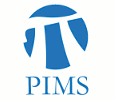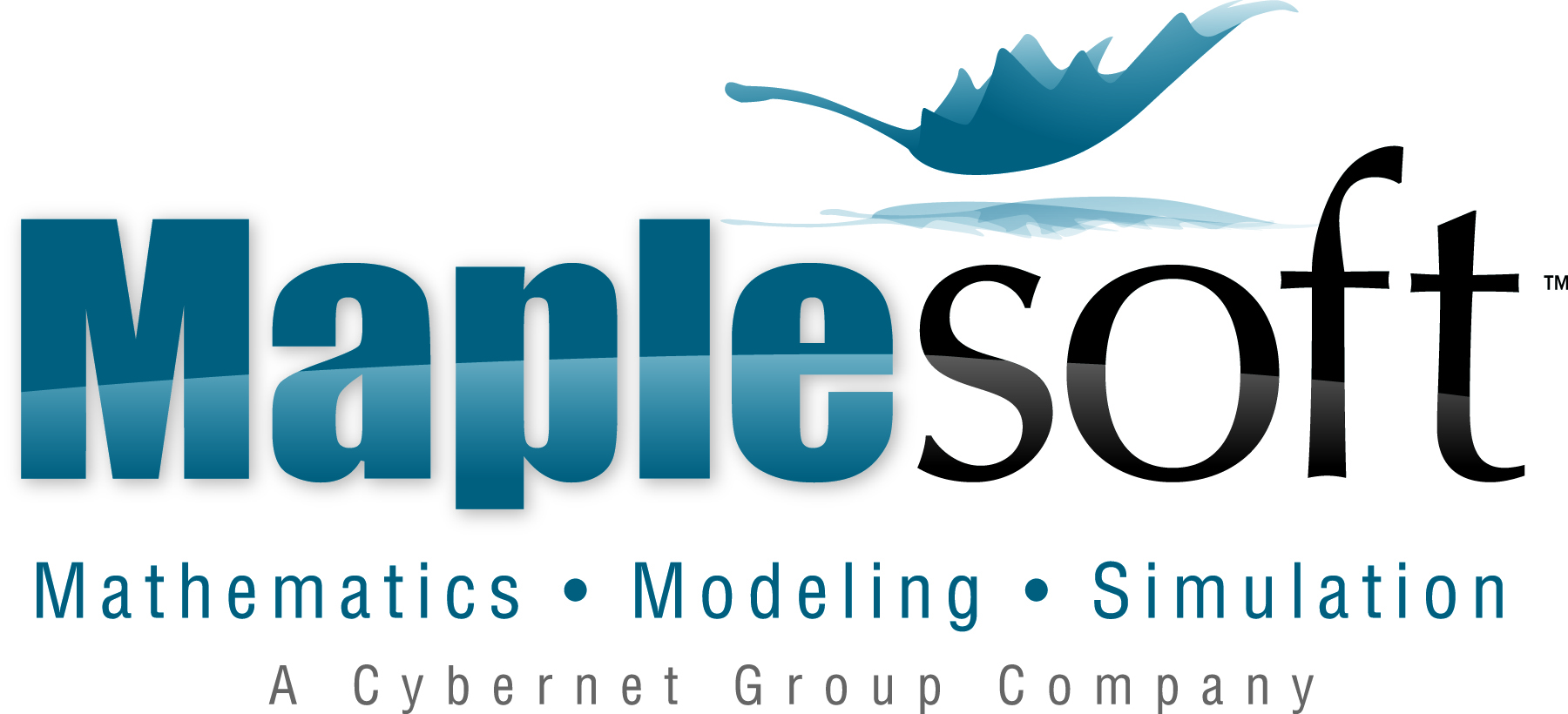Réunion d'hiver SMC 2013
Université d'Ottawa, 6 - 9 décembre 2013
Org: Benoit Collins (University of Ottawa), Thierry Giordano (University of Ottawa), Mehrdad Kalantar (Carleton University) et Matthew Kennedy (Carleton University)
[PDF]
- PAUL BOURGADE, Cambridge University and Institute for Advanced Study
Quantum unique ergodicity for generalized Wigner matrices [PDF]
-
For large generalized Wigner matrices, we prove a probabilistic version of quantum unique ergodicity at any scale, and gaussianity of the eigenvectors entries. The proof relies on analyzing the effect of the Dyson Brownian motion on eigenstates. Relaxation to equilibrium of the eigenvectors is related to a new multi-particle random walk in a random environment, the eigenvector moment flow. This is joint work with H.T. Yau.
- RAPHAEL CLOUATRE, University of Waterloo
Unitary equivalence to Jordan models for weak contractions of class $C_0$ [PDF]
-
We study the problem of classification of Hilbert space contractions belonging to the class $C_0$
through the properties of some associated operator algebras. More precisely, we obtain results on the unitary equivalence of weak contractions of class $C_0$ to their Jordan models under an assumption on their commutants. In particular, our work addresses the case of arbitrary finite multiplicity. The main tool is the theory of boundary representations due to Arveson. Our approach also raises some interesting questions about general non-self-adjoint operator algebras and possible refinements of Paulsen's theorem on completely bounded homomorphisms.
- KENNETH R. DAVIDSON, University of Waterloo
Semicrossed products over lattice semigroups [PDF]
-
We study semicrossed products by semigroups, and in this talk I will specialize to the case of lattice ordered Ore semigroups. For these semigroups, one can restrict attention to representations of the covariance relations which are Nica covariant, a doubly commuting condition that applies to
elements with meet zero. In the abelian case, we show that the C*-envelope of the Nica-covariant semicrossed product for injective systems on C*-algebras is a full crossed product. For the special case of $\mathbb{Z}_+^n$, we embed an arbitrary C* dynamical system into a canonical injective system. We can then deduce that the C*-envelope of the Nica-covariant semicrossed product is a full corner of a full crossed product. In the non-abelian case, we consider right covariance relations, which automatically reduce to the injective case, and again the C*-envelope is a full crossed product.
This is joint work with Adam Fuller (U. Nebraska) and Evgenios Kakariadis (Ben-Gurion U.).
- GEORGE ELLIOTT, University of Toronto
A short essay on the Pimsner-Voiculescu embedding [PDF]
-
In some sense, all embeddings of the irrational rotation C*-algebra in an AF algebra are the same---they are approximately unitarily equivalent (since the domain algebra is simple AT with unique trace). In another sense, the original Pimsner-Voiculescu embedding would appear to have
special properties, as it would seem to be somewhat rigid, with unusually rapid (summable) convergence of the finite-dimensional approximate embeddings, with these being rigidly specified in terms of the continued fraction expansion. An interesting question, perhaps, is whether this map (although it is not quite uniquely determined) is conjugate to another AF-embedding discovered recently by Zhuang Niu and me, obtained simply by cutting the spectrum of each of the canonical unitary generators (at a single point---in some representation of the algebra). Certainly, not all embeddings are conjugate, whether one looks at the mapping or even just the subalgebra (as for subfactors).
- DOUG FARENICK, University of Regina
New characterisations of the weak expectation property [PDF]
-
It is known, by a theorem of Kirchberg, that every separable C$^*$-algebra is a C$^*$-subalgebra of a separable C$^*$-algebra with the weak expectation property. Furthermore, Kirchberg has shown that the assertion that every separable C$^*$-algebra is a quotient of a C$^*$-algebra with the weak expectation property is logically equivalent to the assertion that the Connes Embedding Problem has an affirmative solution. Therefore, it is not surprising that it is rather difficult to ascertain whether a given C$^*$-algebra has the weak expectation property or not. In this lecture I will report on joint work with A. Kavruk, V. Paulsen, and I.G. Todorov in which unital C$^*$-algebras with the weak expectation property are characterised by matrix completion properties and by certain tensorial identities involving group C$^*$-algebras and operator systems.
- ADAM FULLER, University of Nebraska - Lincoln
Semicrossed Products over Semigroups [PDF]
-
Group dynamical systems and the crossed product algebras they generate have long been a source of interesting operator algebras. The natural generalization, inspired by concrete examples of operator algebras, is to consider semigroup dynamical systems. That is, $A$ is an operator algebra and $S$ is a semigroup acting on $A$ by endomorphisms. The goal is to construct a larger algebra, containing $A$, that also encodes the information of the action of $S$ on $A$. The non-self-adjoint versions of these algebras are called semicrossed product algebras.
Recent work has shown that the C$^*$-envelope of a semicrossed algebra can be useful discovering properties of the underlying dynamical system. However, whilst in the C$^*$-literature a wide class of semigroups are considered for crossed-products, the majority of the work on semicrossed products has been carried out in the case when the semigroup $S$ is the non-negative integers.
In this talk we present some recent results on semicrossed products arising from a wider class of positive cones. This is joint work with Kenneth R. Davidson and Evgenios T.A. Kakariadis.
- DANIEL GONÇALVES, UFSC - Universidade Federal de Santa Catarina
Simplicity of partial skew group rings [PDF]
-
Let R be a commutative ring, G a group and $\alpha$ a partial action by ideals that contain local units. In this talk we will describe a simplicity criterion for the partial skew group ring R*G in terms of maximal commutativity and G-simplicity of R. If time permits we will sketch how to use this result to give a new proof of the simplicity criterion for Leavitt path algebras and how to apply it in partial topological dynamical systems.
- MICHAEL HARTZ, University of Waterloo
- DAVID KERR, Texas A\&M University
Borel complexity and automorphisms of operator algebras [PDF]
- DAVID KERR, Texas A\&M University
-
We show that, for the standard examples of strongly self-absorbing
$C^*$-algebras, the action of the automorphism group on itself by
conjugation is generically turbulent.
Using this we then prove that, for all separable $C^*$-algebras
which tensorially absorb the Jiang-Su algebra, the relation
of conjugacy on automorphisms is not classifiable by countable
structures. This includes the $C^*$-algebras that fall under the
scope of classification results based on the Elliott invariant.
The main novelty of our turbulence argument is the use of the
malleability of the tensor product shift over a strongly
self-absorbing $C^*$-algebra. This is joint work with M. Lupini,
N.C. Phillips, and W. Winter.
- JAMIE MINGO, Queen's University
Asymptotic Freeness and the Transpose [PDF]
-
We show a surprising connection between asymptotic freeness of certain ensembles of random matrices and the transpose.
- JONATHAN NOVAK, MIT
Asymptotics of unitary multimatrix models [PDF]
-
A fundamental result of Voiculescu gives algebraic machinery for computing the large $N$ limit of the normalized trace of a polynomial in several independent Haar-distributed random unitary matrices. This result has previously been generalized in two ways: first, to the large $N$ limit of several interacting random matrices (Collins, Guionnet, Maurel-Segala); second, to global fluctuations of several independent random matrices (Mingo, Sniady, Speicher). I will present a unification and extension of these results to the complete asymptotics of all cumulants of several interacting random unitary matrices. The approach rests on the systematic analysis of a hierarchy of noncommutative partial differential equations known as the "Schwinger-Dyson lattice." This is joint work with Alice Guionnet.
- ALEXEY POPOV, University of Waterloo
Abelian, amenable operator algebras are similar to C*-algebras [PDF]
-
Suppose that $H$ is a complex Hilbert space and that $B(H)$ denotes the bounded linear operators on $H$. We show that every abelian, amenable operator algebra is similar to a $C^*$-algebra. We do this by showing that if $A \subseteq B(H)$ is an abelian algebra with the property that given any bounded representation $\varrho: A \to B(H_\varrho)$ of $A$ on a Hilbert space $H_\varrho$, every invariant subspace of $\varrho(A)$ is topologically complemented by another invariant subspace of $\varrho(A)$, then $A$ is similar to an abelian $C^*$-algebra.
This is a joint work with Laurent W. Marcoux.
- CHRIS RAMSEY, University of Virginia
Triangular algebras vs. tensor algebras [PDF]
-
In 1959 Kadison and Singer defined an operator algebra T to be triangular if $T \cap T^*$ is abelian. The tensor algebra of a C$^*$-correspondence over a commutative C$^*$-algebra is then triangular, which begs the question whether all triangular algebras are tensor algebras. We will look at this question in the case of triangular UHF algebras.
- LUIS SANTIAGO, University of Oregon
- PAUL SKOUFRANIS, University of California - Los Angeles
Freely Independent Random Variables with Non-Atomic Distributions [PDF]
- PAUL SKOUFRANIS, University of California - Los Angeles
-
One central concept in the study of free probability is to describe the spectral distributions of non-commutative polynomials of freely independent random variables. In this talk, we will examine the spectral distributions of non-commutative polynomials of non-atomic, freely independent random variables. In particular, the construction of an analogue to the Strong Atiyah Conjecture for free groups implies that the measure of each atom of any $n \times n$ matricial polynomial of non-atomic, freely independent random variables is an integer multiple of $n^{-1}$. In addition, we will show that the distribution of any matricial polynomial of freely independent semicircular variables has an algebraic Cauchy transform and thus is real-analytic except at a finite number of points. This is joint work with D. Shlyakhtenko.
- GRAZIA VIOLA, Lakehead University
Tracially Central sequences [PDF]
-
A central sequence in a C*-algebra is a sequence that asympotically commutes in norm with every element of the algebra. Similarly a we have a definition of central sequences for II$_1$ factors, where the convergence is now in the L$^2$-norm associated with the trace. It is well known that the group von Neumann algebra of the free group on two generators have only trivial central sequences. On the other hand, the reduced C*-algebra of the free group on two generators has an abundance of central sequences. To solve this dichotomy we introduce a new notion of central sequences, the tracially central sequences. We believe that the notion of tracially central sequence should replace the notion of central sequences in a C*-algebra. In fact we show that if A is a simple, stably finite, unital, separable C*-algebra, which has strict comparison of positive elements and a unique tracial state, and if in addition A satisfies an extra condition, then the tracially central algebra of A coincides with the central algebra of the von Neumann algebra associated to the Gelfand-Naimark-Segal representation of A.
- QINGYUN WANG, University of Toronto
Tracial Rokhlin property and non-commutative dimensions [PDF]
-
Tracial Rokhlin property for finite group actions on C*-algebras was introduced by Chris Phillips to study the structure of the crossed product, which could be viewed as a finite group analogue of the classical Rokhlin lemma. In this talk, we will give a characterization of product-type actions with tracial Rokhlin property. Then we will show that, if $\alpha\colon G \rightarrow Aut(A)$ is a finite group action with the weak tracial Rokhlin property, where $A$ is a $\alpha$-simple unital C*-algebra with either tracial rank zero, or real rank zero, or stable rank one, the same property on $A$ passes to the crossed product $C^*(G,A,\alpha)$.







